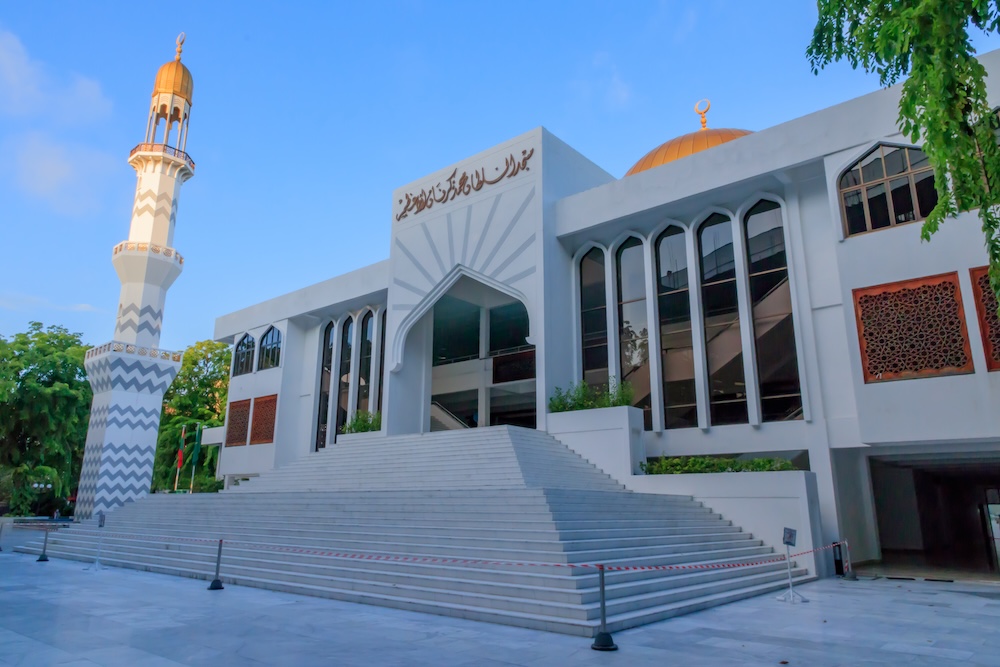Posted by Dr Daud Batchelor | 29 Sep, 2025
In a landmark result for 2025, the Maldives and Malaysia jointly secured first place among 33 Muslim countries in the latest edition of the Islamic Wellbeing Index (IWI 5.0).
This outcome underscores a rising consensus that Muslim countries thrive when they harmonise spiritual devotion (ibadat) with socio-economic justice and public welfare (mu‘amalat).
Next rankings were Indonesia (3rd), Tunisia (4th), Senegal (5th), Jordan (6th) and Egypt (7th).
The IWI, first launched in 2013 and continuously refined, offers a unique yardstick for measuring actualised values of Islam in society.
Unlike indices focusing on governance or legal frameworks, the IWI assesses real-world outcomes across the five essential maqāṣid al-sharī‘ah (core objectives of Islamic law): Religion (Din), Life (Nafs), Intellect (‘Aql), Family (Nasl), and Wealth (Mal).
This is the third consecutive IWI release in which Malaysia and the Maldives remain closely-matched, demonstrating consistency in promoting both spiritual and material well-being among their citizens.
It reflects intentional policies, community expectations and a governance ethos that integrates Islamic values into national development frameworks.
Both countries performed strongly across all five domains:
- Religion: High levels of daily prayer, mosque attendance, and personal religiosity.
- Life: Effective provision of healthcare, personal security, and social support.
- Intellect: High adult literacy, female education inclusion, research investment, free media.
- Family: Stable fertility rates, improving maternal and infant care, and family cohesion.
- Wealth: Relatively low corruption, and strong Islamic finance sectors.
While Malaysia historically led in Islamic finance and education, Maldives’ social indicators and religiosity levels caught up, enabling it to match Malaysia’s score in 2025.
Highlights from 2025:
- Indonesia surged ahead in the Religion dimension, to become the most religiously observant nation based on new Pew survey data—surpassing even West African countries historically known for piety.
- Saudi Arabia, UAE, and Palestine lead the Wealth objective.
- Maldives, Malaysia, and Qatar top the Intellect dimension, driven by education, press freedom, and R&D investments.
- Syria, Palestine, and Yemen, surprisingly excelled in the Family dimension, reflecting family cohesion and resilience in responding to conflicts.
- UAE, Albania, and Qatar lead in the Life domain.
- Former communist countries and conflict-affected states such as Afghanistan and Syria, remain at the bottom of the rankings, reflecting lingering structural weaknesses and an urgent need for reform.
The 2025 IWI includes a key methodological enhancement with integration of the Global Innovation Index under the Wealth category, reflecting a broader understanding of economic vitality through education, research, and knowledge transfer.
While some critique a secular bias in global datasets, the IWI continues to be guided by Shari’ah principles, drawing on the consensus of Muslim scholars such as Jasser Auda, Hashim Kamali, and Feisal Abdul Rauf.
Indicators are not ideal, but—as the taqdir of current global limitations—they offer a meaningful baseline for progress.
Questions about the ranking of Palestine below Tunisia and Egypt in past IWIs are clarified: while Palestinians exhibit immense spiritual fortitude, they suffer poor outcomes in life expectancy, security and employment.
With growing scholarly interest and robust methodology, the IWI is now poised to shift from being merely an academic tool to a policy catalyst across the Ummah.
Future strategic directions include:
- Establishing a dedicated institutional body to manage and expand the Index, ideally based in Malaysia in partnership with its Ministry of Foreign Affairs
- Securing funding for targeted surveys across all 51 Muslim-majority countries to address data gaps and deepen country-specific insights.
- Promoting country-specific IWI reports, enabling tailored policy advice and benchmarking.
- Facilitating peer mentoring, where high-performing countries (eg, Malaysia) support lagging nations through knowledge-sharing and Islamic governance models.
As expressed in al-Qur’an (2:200–202), Muslims are taught to strive for the good of both this world and the Hereafter. The Islamic Wellbeing Index is an attempt to measure—and inspire—such balance.
It is time for scholars, policymakers, and civil society actors to act on this vision, to support the Index in advancing Islamic wellbeing across the Ummah.
Feedback is welcome. Please forward to Dr Daud at [email protected]

